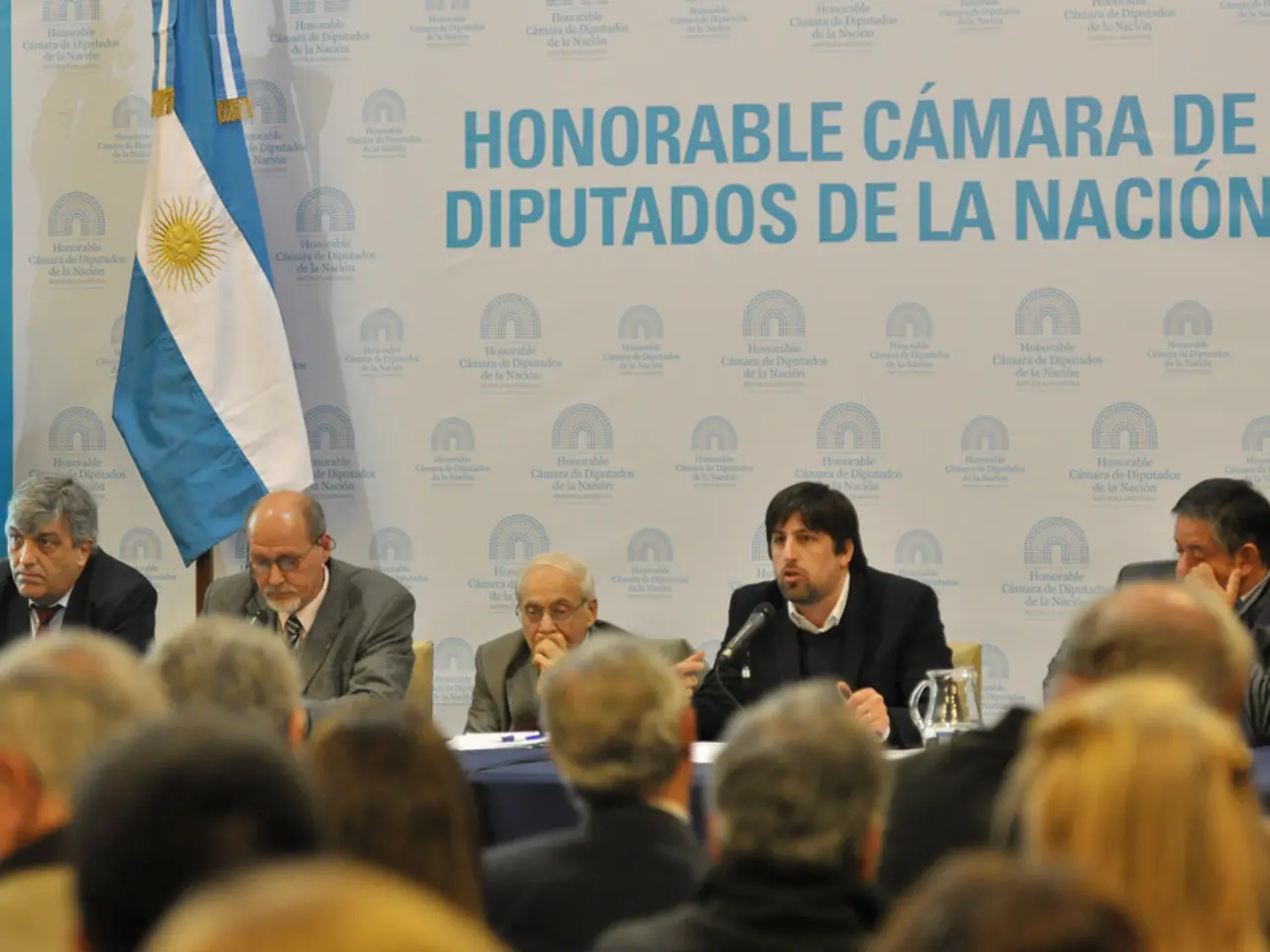Controversy swirls over Thaksin's not-guilty verdict concerning royal slurs
The Criminal Court in Thailand has recently dismissed a lese-majeste case against former prime minister Thaksin Shinawatra, a decision that has sparked debates and calls for a more consistent and transparent approach in such cases.
According to Jade Donavanik, a legal scholar, the application and interpretation of the lese-majeste law have long been a subject of debate. The case of Thaksin, indicted under Section 112 of the Criminal Code and the Computer Crimes Act for remarks made in a 2015 interview, may be premature to treat as a legal precedent due to the likelihood of an appeal.
The court ruled that prosecutors failed to prove Thaksin's comments directly referred to the King or members of the royal family. Thaksin's lawyer, Winyat Chartmontree, echoed this sentiment, stating that the court dismissed the case due to lack of clear identification of individuals protected under Section 112 in Thaksin's statements.
Olarn Thinbangtieo, a political science and law lecturer, supported the court's decision, stating that the judgment reflected factual reasoning as Thaksin's language did not directly implicate the King, the heir apparent, or core members of the royal family.
However, the case has not been without controversy. Critics accuse the courts of double standards in lese-majeste cases, a claim that has been fuelled by the contrast between Thaksin's case and that of young activists, who are often denied bail despite the presumption of innocence.
Jade suggests the judiciary should take a more strategic approach by studying and comparing rulings in similar cases to establish consistency and explain the reasoning behind their decisions. Olarn, meanwhile, proposes forming a committee to screen all lese-majeste complaints before they proceed to court to prevent political misuse. The committee, according to Olarn, should include prosecutors, judges, academics, and civil society representatives.
Nipit Intarasombat, another voice in the debate, urges the Office of the Attorney General (OAG) to appeal Thaksin's case, warning that failure to do so could erode public trust in the justice system. The OAG has 30 days from the ruling to decide whether to appeal, with the option of extending the deadline in 30-day increments.
The Ministry of Digital Economy and Society in Thailand has already proposed a committee to review lese-majeste complaints within the last 30 days. The need for a consistent and strategic approach in all lese-majeste cases, as argued by Mr Jade, is becoming increasingly apparent.
As the case is likely to be appealed, the explanations given by the court in Thaksin's case will be closely scrutinised. Citing 'weak evidence' in Thaksin's case without comparing it to the weakness of evidence in other cases where defendants are convicted could deepen the controversy, as per Mr Jade.
In a time when the justice system is under scrutiny, it is crucial that it adopts a consistent and strategic approach in all lese-majeste cases to maintain public trust and uphold the principles of fairness and justice.
Read also:
- Lu Shiow-yen's Challenging Position as Chair of the Chinese Nationalist Party (KMT) Under Scrutiny in Donovan's Analysis
- Thai electorate supports business magnate from Generation X as prospective Prime Minister
- Tensions over the contested border between China and India are under discussion at a crucial meeting, while Putin discusses Trump matters.
- Indian Prime Minister Modi embarks on a seven-year absence trip to China; encounters Xi Jinping and Vladimir Putin amid escalating U.S. tariffs.








